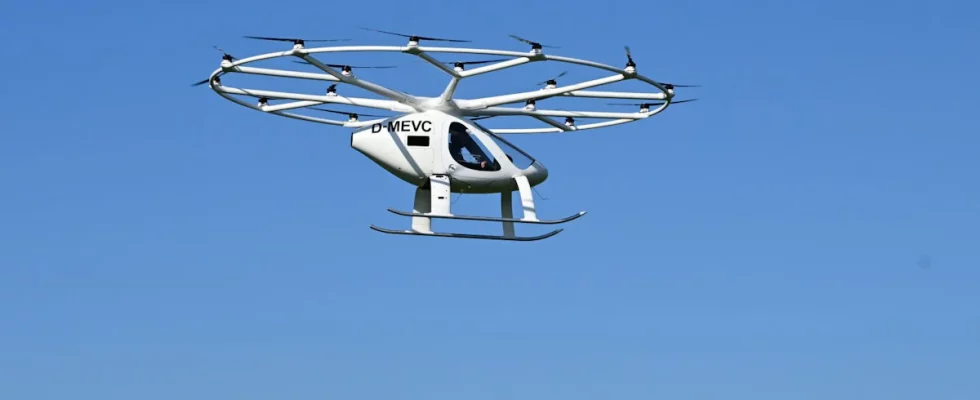It is unusual what the bosses of the two large German air taxi start-ups Volocopter and Lilium have done in the past few days. One, Dirk Hoke (Volocopter), spoke publicly about possible bankruptcy. The other, Klaus Roewe (Lilium), thought that Lilium could actually almost move to the moon, where there would be as much support for the new sector as in Germany. Namely none.
Hoke and Roewe believe they can sell thousands of their Volocities and Lilium Jets and, together with other providers, create a completely new form of electromobility. It is difficult to say at the moment whether air taxis will really become the big thing worldwide. In any case, the current stance of the state governments in Bavaria and Baden-Württemberg as well as the federal government of not granting loan guarantees to both companies is provincial and unwise. It could ensure that Germany is out of a new economic sector before it has even taken off. Giving the guarantees would be an important signal to private investors. They would notice that there is support for a new industry, which in turn will influence who they give their money to.
Even if one is very pessimistic, electric air taxis will be able to replace helicopters on certain, especially shorter routes. Which would be good, because they are more efficient, quieter, cheaper and, above all, electric. That alone is not a small market – there are tens of thousands of helicopters that supply oil rigs, wind farms or ships, transport injured people or fly from high-rise to high-rise in megacities. All of this is currently anything but environmentally friendly.
The skepticism that greets the new industry, especially in this country, should not obscure the fact that “Advanced Air Mobility”, as the sector is called, is viewed completely differently elsewhere. Electric air taxis are a central part of China’s economic strategy. Saudi Arabia, the United Arab Emirates, Brazil, the USA and others want to develop the industry quickly and are investing billions of dollars in funding into local companies.
Much of the technological development taking place today for air taxis will be important for the next generation of large aircraft, including the successors to the Airbus A320 or the Boeing 737. Battery technology, new materials, flight controls, the entry into autonomous flying – a wealth of areas in which the Liliums, Volocopters, Archers and Jobys are doing pioneering work today. The technologies these companies are working on are becoming important, especially for the mega-project of making flying more sustainable than before.
Of course, these projects also involve risks. By no means all companies will survive. Because the capital market has become extremely cautious and interest rates are high, financing is a problem. Lilium is building a fascinating but also complex aircraft. Not all skeptics are still convinced that the concept will really catch on. But should we seriously let everything fail from the start because of a 100 million guarantee that somehow doesn’t fit into the party program? Failure in the sense that Lilium and Volocopter are sold, move away and then continue elsewhere?
The Free Voters, headed by Economics Minister Hubert Aiwanger, apparently argue that the risk of a total failure is too high. The Greens in Baden-Württemberg also saw it that way. But there is a strong suspicion that this is not the whole truth. If an issue is closer to the parties’ respective clientele, subsidies of a completely different amount are ultimately no problem.
It’s not exactly the case that Germany is booming economically and bursting with innovative sectors. Quite the opposite – areas such as the automobile industry, on which prosperity was based for decades, are under threat. Sure, Lilium and Volocopter could fail. If Germany’s economic politicians continue on their all-inclusive course, they themselves will significantly increase the likelihood of this failure.

